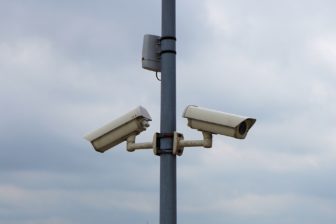Tag: Necessary and Proportionate Principles

The Geneva Declaration on Targeted Surveillance and Human Rights
The international community unites to end spyware abuse with the launch of the Geneva Declaration.

Cybersec and beyond! The digital rights battles Australia can win
Here’s how Australia can turn the ship around and strengthen its cybersecurity.

Privacy advocates call on U.S. Congress to release information crucial for surveillance reform debate
Access Now joins more than 30 civil society organizations in calling for U.S. House Judiciary Committee leaders to release critical information regarding the current implementation of U.S. surveillance laws.

What (we think) you should know about Australia’s new encryption bill
Prime Minister Malcolm Turnbull recently introduced legislation to compel device manufacturers and service providers to assist law enforcement in accessing encrypted information.

Argentina province in talks with Huawei over acquiring facial recognition surveillance technology
Civil society in Argentina delivered a letter to Mendoza’s government detailing concerns about the potential acquisition of Huawei surveillance technologies.

Nominate your Human Rights Heroes & Villains
Every year, Access Now celebrates the heroes of human rights in the digital age, and we’re looking for nominations! We need your help to find the people and groups who are working to defend our rights.

Media “switch-off” in Kenya: a looming threat to pluralist society
In a guest post, Grace Mutung’u argues that regardless of the rationale, switching off four TV channels in Kenya is a disproportionate measure that interferes with the right to free expression.

Saving our agnostic internet, part I: censorship and free expression
Governments globally are pushing companies to “do more” to address harmful speech online. Any approach must bolster, not undermine, human rights.

Ali Gharavi and Peter Steudtner declared “Heroes” for providing digital security training to users at risk in Turkey
Gharavi and Steudner provided training in digital security for those who need it most, at great personal risk and cost to themselves.

Attorney General George Brandis declared “Villain” by Access Now for comments undermining encryption
Working to undermine encryption is an attack on human rights.